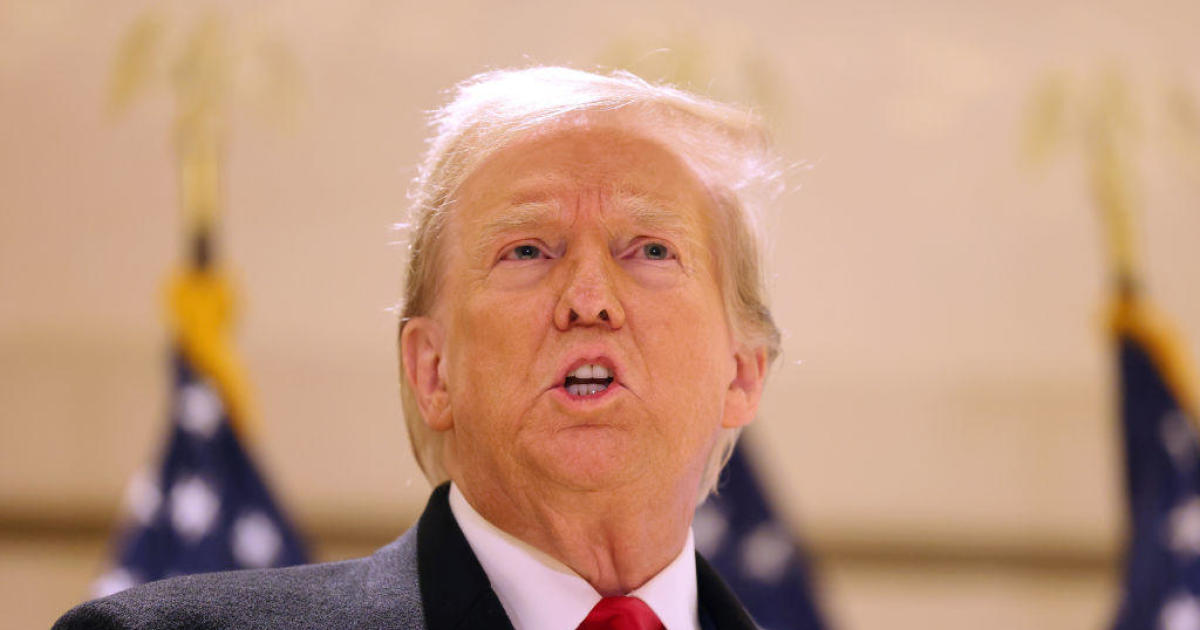GOP Takes On Government, Campaign Finance Rules In Budget
ST. PAUL, Minn. (AP) — House Republicans hammered in their boldest budget stake by capping the number of state employees and snipping away at the governor's executive authority — just two in a handful of budgetary provisions that rankle Gov. Mark Dayton and fellow Democrats who control the Senate.
During a House session that began Friday and stretched into early Saturday morning, GOP lawmakers offered a budget bill that also would limit future salary hikes for administration officials, cut the new Metropolitan Council chair's salary in half and remove the governor's ability to appoint those council members. In a rare moment of agreement in an otherwise heated debate, lawmakers unanimously voted to subject themselves to a proposed 5 percent cut to House staff funding.
The bill passed 73-55, with nearly all Democrats voting against it.
It's one of many budget bills Minnesota's split political powers need to agree on as the Legislature creeps near its May 18 deadline. The House also passed a budget for environmental agencies Thursday.
Dayton singled out the GOP's state agency budget for criticism, calling it legislative meddling. And Senate Majority Leader Tom Bakk called on House Speaker Kurt Daudt earlier this week to leave out policy changes that could jam up budget negotiations.
Daudt said Thursday Bakk hasn't followed his own advice.
"They can expect to see important policy provisions in our bills and they can expect to visit with us about those during conference committee," the speaker said.
As the Legislature creeps near its May 18 deadline, legislative leaders' attention will soon shift away from the countless hours of floor debates, moving into negotiations between the Senate and House, Daudt said. And there may be no greater divide to bridge than with plans to fund state agencies.
House State Government Finance Chairwoman Sarah Anderson said her bill is designed to force state agencies to operate more efficiently and return oversight power to lawmakers, repeatedly drawing on a new, $90 million Senate office building and the since-reversed raises Dayton gave to his cabinet members earlier this year. She refuted the idea that capping the number of employees — at roughly 36,000 — and limiting executive branch salaries would handicap government.
"We need to slow down things," Anderson said. "Minnesotans have been footing the bill for a long time, and they can't afford it anymore."
But House Democrats said the GOP went too far, especially in light of Minnesota's projected $1.9 billion surplus. They honed in on a 5 percent cut to the budget for House staff, pushing a successful amendment to extend that cut to lawmakers' own funding for salaries and expenditures.
Bakk took issue with what isn't in the bill: payments for the new Senate office building. The Senate included those funds in its own state government budget passed last week.
"If they think I'm going to trade something to get it, that's not going to happen," the majority leader said.
House Democrats spent the bulk of an hours-long debate on proposed changes to Minnesota's campaign finance regulations. The bill would remove the limit on how much money in total that candidates can collect from lobbyists and outside groups and would also repeal the state's campaign subsidy program.
Those provisions gave DFL lawmakers an opening to try to force some groups active in Minnesota politics to disclose more information about their spending late in campaigns. Republicans defeated that amendment, saying Democrats' counter-proposal was vague and wouldn't stand up to a court challenge.
The fight over the executive branch's power spilled into debate about water quality, as Democrats failed to remove part of the House environmental budget bill requiring legislative sign-off on some water quality standards. DFL lawmakers argued that change would subject scientific decisions to lobbying and political pressures.
"What it comes down to is not science, but political power," Minority Leader Paul Thissen said. "We're not very good with science. We should leave those decisions to the experts."
(© Copyright 2015 The Associated Press. All Rights Reserved. This material may not be published, broadcast, rewritten or redistributed.)



